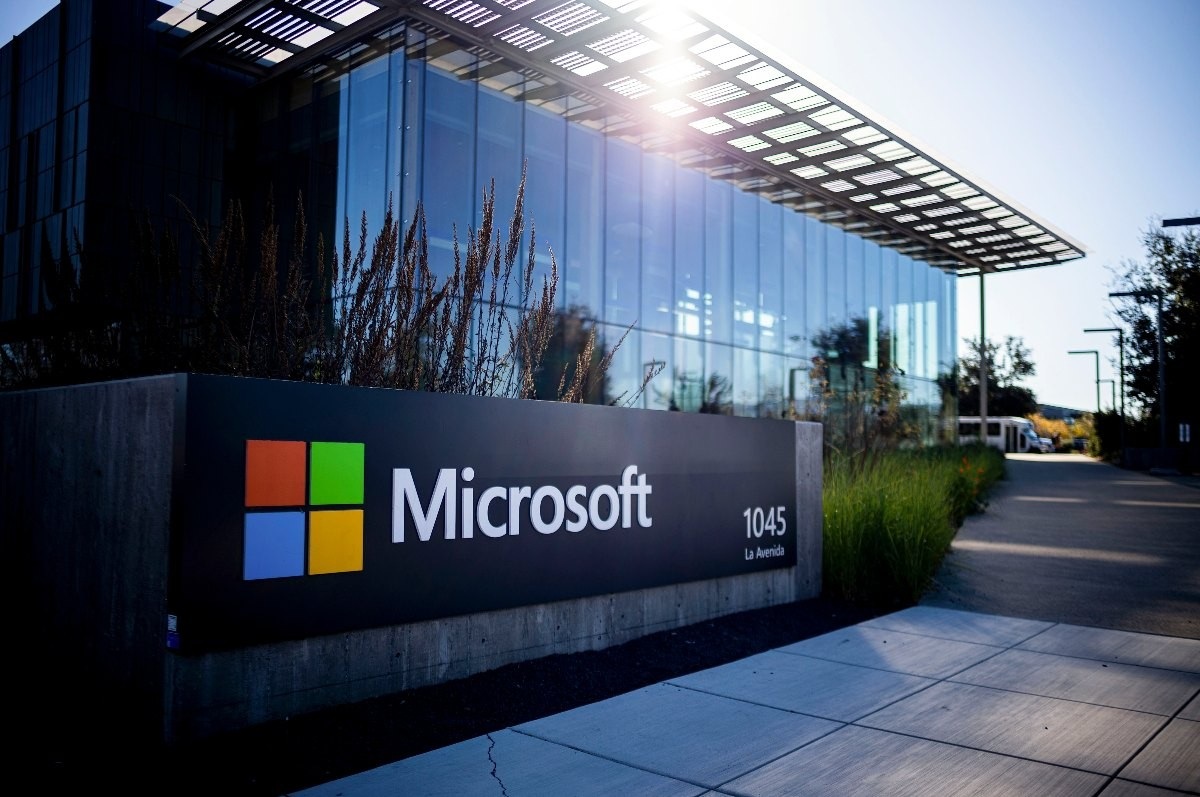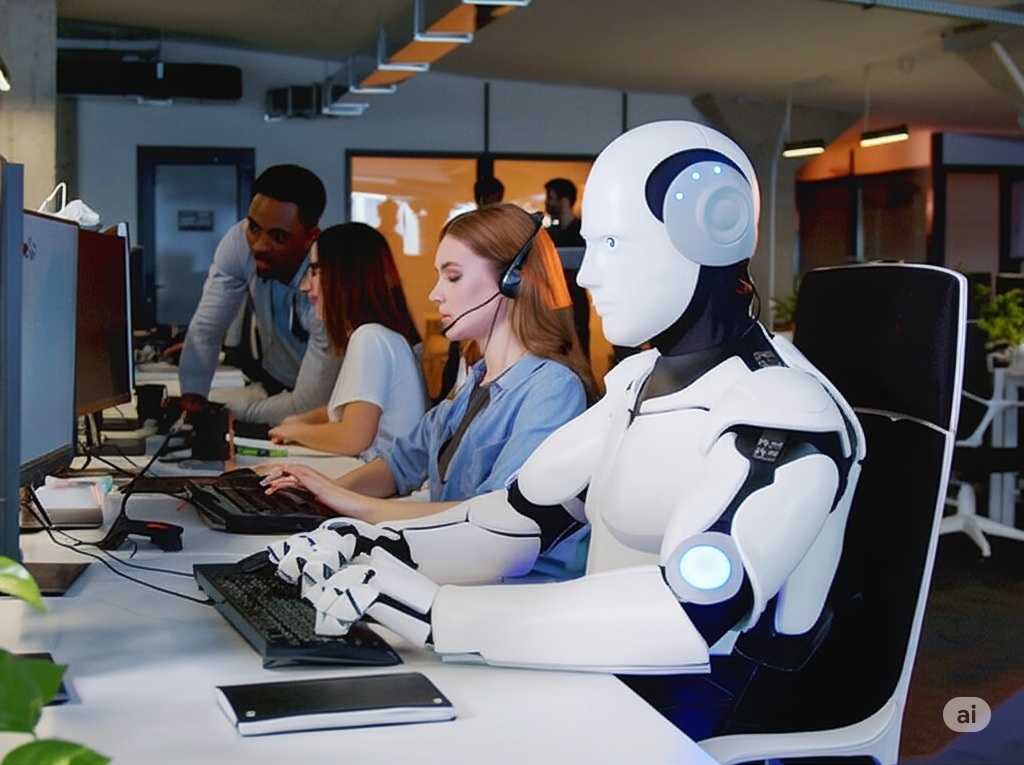Imagine, you - a diligent office worker, instead of starting a working day with a familiar cup of coffee in the morning, the first thing that catches your eye on the computer screen is a shocking headline: "Anthropic CEO: AI will eliminate half of office jobs in 5 years, unemployment could reach 20%". What would you think? Is your "rice bowl" safe in this storm?
Dario Amodei, head of Anthropic — one of OpenAI’s fiercest rivals — is not an idle commentator. His warning comes as the final straw after a string of recent AI-related layoffs.
The AI “Gold Rush” and its Chilling Prophecies
In a flat and constantly connected world, artificial intelligence (AI) has gone from a science fiction term straight into life, becoming the center of every economic discussion. But behind the halo of efficiency and breakthrough potential, a "ghost" is gradually appearing, which is the risk of widespread job loss.
Dario Amodei, CEO of Anthropic - one of OpenAI's fiercest rivals - has sounded a stark warning: AI could "eliminate" up to half of low-level office jobs, pushing unemployment to 20% in just the next 5 years. This prophecy, while shocking, is not unfounded as the first signs have appeared, especially in the technology sector, where new graduates are clearly feeling the pressure from their AI "colleagues".
Not only CEO Amodei, but also researchers at Anthropic, Sholto Douglas and Trenton Bricken, also made predictions that made office workers shudder.
They argue that the mass automation of desk jobs is a “near certainty,” perhaps within the next two years and almost a given within five. Notably, Douglas stresses that even if AI algorithm development slows down, the current toolkit, if fed with the right data, is more than enough to replace humans in a wide range of office tasks.
The logic behind these assertions goes beyond technological prowess. Economics plays a decisive role. Automation, while initially costly, promises in the long run to cut massive labor costs, increase productivity, and gain a competitive advantage. This explains why large technology corporations, while pouring billions of dollars into AI development, are not hesitant to make large-scale staff cuts.
Amodei calls for a more forthright approach from governments and AI companies, and for a stop to “glossing” a future in which AI is only beneficial. He believes that AI has the potential to cure incurable diseases or boost economic growth, but the downside—the loss of a wide range of jobs in technology, finance, law, consulting, and other white-collar jobs, especially at the lower levels—is being overlooked. This is no longer a Silicon Valley story, but a global issue that requires careful preparation from each country.
Harsh reality: When AI "takes action" to cut staff
The warnings are no longer just theories. The wave of layoffs with AI implications is becoming more evident. Microsoft, the tech giant and a major investor in OpenAI, is a prime example. Just weeks after laying off 6,000 employees in May, the corporation continued to cut hundreds more jobs in early June, affecting positions ranging from software engineers and marketers to lawyers and scientific researchers.
A Microsoft spokesperson acknowledged that these are “necessary organizational changes to position the company for success in an ever-changing marketplace,” one in which AI is at the forefront.

Microsoft has continued to cut hundreds of jobs just weeks after laying off 6,000 employees in May (Photo: Bloomberg).
The irony is that the AI boom, which is expected to create new jobs, is also helping to cut the cost of existing human resources. Microsoft and Meta Platforms (Facebook’s parent company) have publicly touted the efficiency of AI-powered programming tools that speed up software development and, in turn, reduce the need for certain engineers. Last week, Salesforce Inc. said that its internal use of AI has allowed it to reduce its need for new employees.
The banking and finance industry is also feeling the heat. Citigroup Inc. recently announced plans to cut about 3,500 jobs at its technology centers in Shanghai and Dalian, China, expected to be completed by the beginning of the fourth quarter of this year.
The move is part of a global strategy to streamline technology operations and improve risk and data management capabilities, areas where AI is proving to be a boon. Earlier in May, Citigroup also cut about 200 contract technology employees in China.
But the rush to replace humans with AI doesn’t always work out. Last year, the “buy now, pay later” service company Klarna experimented with replacing its customer service agents with AI. But just this month, it admitted its mistake and is looking to rehire its staff. It’s a small testament to the complexity of the transition and the role of humans, at least not yet.
Controversial debate and the prospect of a "bad decade"
Not everyone agrees with the somewhat gloomy predictions. Billionaire Mark Cuban, on the social network Bluesky, argued against the CEO of Anthropic, saying that history has proven that technology always creates new jobs to replace old ones.
“Someone should remind the CEO that there was a time when we had more than 2 million secretaries,” he wrote. “There were also people who sat in offices taking notes. They were the first office workers to be replaced by technology. But new companies and new jobs were created because of those changes, and the total number of jobs continued to grow.”
Cuban’s argument is not wrong when looking at previous industrial revolutions. However, the speed and scale of AI’s impact this time is considered fundamentally different. AI is not only automating repetitive tasks, but also capable of performing jobs that require a certain level of analysis and creativity - skills that are considered the “stronghold” of knowledge workers.
Anthropic researchers Douglas and Bricken paint an even more ominous picture of the transition. They call it “a pretty bad decade,” where AI could outpace robots in physical tasks. While robots might still struggle to open a door, AI will now be able to program and perform a myriad of computer tasks.
This could lead to a strange future where machines take over the “thinking” part, and humans are relegated to manual labor, becoming “amazing robots” who take orders from a “robot boss” via headsets and smart glasses. “It’s a really shocking world,” Douglas said.
If mass job losses occur while scientific breakthroughs and robotic deployments remain sluggish, everyday life will hardly improve, and human value may be reduced to the ability to perform physical tasks that AI cannot yet do.

Anthropic researchers call the transition “a pretty bad decade” as humans become “amazing robots” (Photo: Shutterstock).
The Lagging Nation and the Call to Action
Given this risk, Douglas and Bricken warn that countries that fail to prepare could be left behind. In particular, countries that lack large-scale advanced AI models—“frontier models” like India, Nigeria, and Australia—will face difficult decisions. The advice is for governments to urgently invest in computing infrastructure, AI companies, and the broader technology ecosystem.
“Computing power is going to be the most valuable resource in the world,” Douglas asserts. “A country’s gross domestic product (GDP) will be greatly influenced by how well they can utilize their computing resources.”
This call is not just for governments. Businesses and workers themselves need to be clear about the irreversibility of this change. Instead of panicking, we need to adopt a proactive strategy of adaptation: retraining, upskilling, and finding new roles that AI cannot or will not replace.
The AI revolution is taking place at breakneck speed, bringing with it unprecedented opportunities and challenges. Office jobs, once considered a “safe haven,” are now at risk of shrinking significantly.
The layoffs at Microsoft and Citigroup are just the first signs of a larger seismic shift. In the face of this uncertain future, proactive adaptation, investment in skills and innovative thinking are key to ensuring that individuals, businesses and countries do not fall behind in the global AI race. The AI scythe may be invisible, but its impact on the labor market and the economy is tangible and growing.
Source: https://dantri.com.vn/kinh-doanh/thap-ky-toi-te-nhat-dang-bat-dau-vi-ai-20250605213533261.htm

































































































Comment (0)